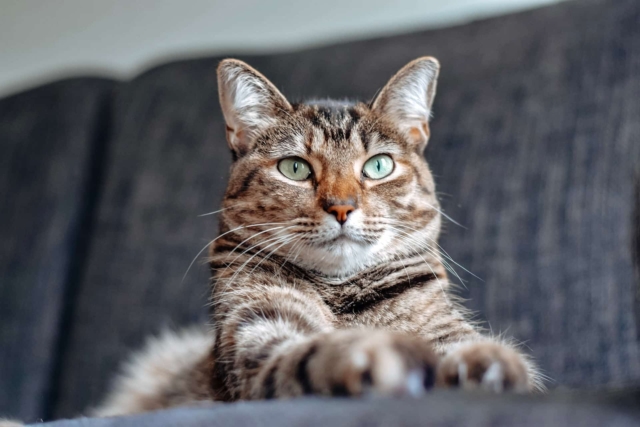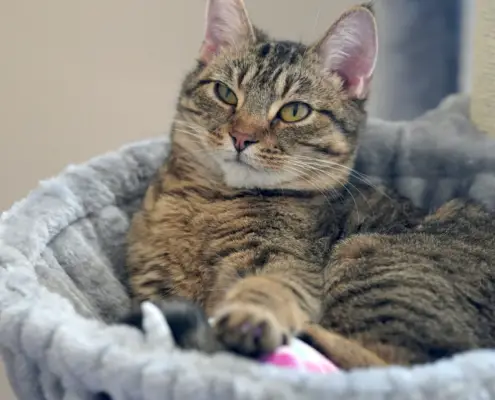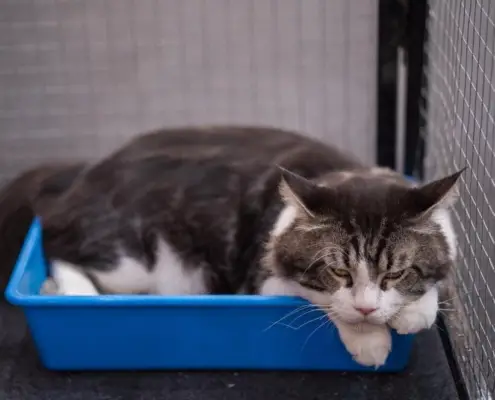
Cats are known for their finicky eating habits, and many cat owners have experienced the frustration of a cat with a sensitive stomach. Understanding feline digestion is crucial for providing the best care for your furry friend. By gaining insight into how a cat’s digestive system works, you can identify the signs of a sensitive stomach and take appropriate measures to manage it. This article will delve into the science behind a cat’s sensitive stomach and provide valuable information to help your cat thrive.
Common signs of a sensitive stomach in cats
Cats with sensitive stomachs often exhibit certain signs that can indicate digestive issues. These signs may include frequent vomiting, diarrhea, flatulence, and a lack of appetite. It is important to observe your cat’s behavior and monitor their eating habits to identify any patterns or changes that may point to a sensitive stomach. If you notice these signs persistently, it is crucial to seek veterinary care to rule out any underlying medical conditions.
Causes of a sensitive stomach in cats
There can be several causes behind a cat’s sensitive stomach. Food allergies or intolerances are common culprits, as certain ingredients can trigger an adverse reaction in cats. Poor-quality or inappropriate diet can also lead to digestive issues. Additionally, stress, changes in environment, and even eating too quickly can contribute to a sensitive stomach in cats. Understanding the specific cause behind your cat’s digestive issues is vital for effective management.
The science behind a cat’s digestive system
To understand a cat’s sensitive stomach, it is essential to comprehend the intricacies of their digestive system. Cats are obligate carnivores, which means their bodies are designed to digest and metabolize animal protein efficiently. Their digestive tracts are shorter than those of omnivores or herbivores, as they are adapted for a diet rich in meat. Furthermore, cats have a higher protein requirement compared to other animals. These unique physiological characteristics make cats more susceptible to digestive sensitivities.
The digestive process in cats begins in the mouth, where they chew their food before swallowing. Once in the stomach, the food is broken down by stomach acid and digestive enzymes. From there, it moves into the small intestine, where nutrients are absorbed. Any undigested material then passes into the large intestine, where water is reabsorbed, and waste is formed. Understanding this process helps in identifying potential areas of disruption that may cause a sensitive stomach.
How to manage a cat’s sensitive stomach
Managing a cat’s sensitive stomach requires a holistic approach that addresses both diet and lifestyle factors. Start by consulting with your veterinarian to rule out any underlying medical conditions. They may recommend dietary changes or prescribe medication to alleviate symptoms. If your cat has food allergies or intolerances, switching to a hypoallergenic or limited-ingredient diet may be necessary. It is crucial to introduce any dietary changes gradually to avoid further digestive upset.
Diet and nutrition for cats with sensitive stomachs
Diet plays a crucial role in managing a cat’s sensitive stomach. Opt for high-quality, easily digestible cat food that is specifically formulated for sensitive stomachs. Look for products that contain a single source of animal protein and avoid those with artificial additives or fillers. Feeding smaller, more frequent meals throughout the day can also help prevent digestive issues. Additionally, ensure your cat has access to fresh water at all times to promote proper hydration.
Tips for preventing digestive issues in cats
Prevention is always better than cure when it comes to a cat’s sensitive stomach. To prevent digestive issues, establish a consistent feeding routine and avoid sudden dietary changes. Provide a stress-free environment for your cat, as stress can exacerbate digestive sensitivities. Encourage moderate exercise to promote a healthy digestive system. Finally, consider incorporating probiotics into your cat’s diet to support a balanced gut flora.
When to seek veterinary care for a cat’s sensitive stomach
While some digestive issues can be managed at home, it is important to know when to seek veterinary care. If your cat’s symptoms persist or worsen despite dietary changes and lifestyle modifications, it is crucial to consult with your veterinarian. They can conduct further examinations, such as blood tests or imaging, to identify any underlying medical conditions. Prompt veterinary care can help prevent complications and ensure your cat’s overall well-being.
Natural remedies for a cat’s sensitive stomach
In addition to dietary changes and veterinary care, there are natural remedies that can support a cat’s sensitive stomach. Certain herbs, such as chamomile or ginger, can have soothing effects on the digestive system. However, it is important to consult with your veterinarian before introducing any natural remedies to ensure they are safe and appropriate for your cat. Remember that natural remedies should complement, not replace, proper veterinary care.
Helping your cat thrive with a sensitive stomach
Understanding feline digestion and the science behind a cat’s sensitive stomach is crucial for providing the best care for your furry friend. By recognizing the signs of a sensitive stomach, identifying the causes, and implementing appropriate management strategies, you can help your cat thrive. Remember to consult with your veterinarian for guidance tailored to your cat’s specific needs. With proper care, a sensitive stomach doesn’t have to hinder your cat’s happiness and well-being.
If you suspect your cat has a sensitive stomach, consult with your veterinarian for proper diagnosis and guidance. They can provide tailored recommendations to help your cat thrive.
If you enjoyed my article, I would appreciate you sharing it with your network.

Sima Ndlebe
Sima writes for CatBuzz. He is interested in Cats, Health and Fitness, and Entrepreneurship.
Published: 1 November 2023
Related Articles
Disclaimer
The content found on CatBuzz.org is presented on an "as is" basis and is intended for general consumer information and education purposes only. Any utilization of this information is voluntary and solely at the user's own risk.
None of the articles or content should be regarded as, or used in place of, veterinary medical advice, diagnosis, or treatment. The information provided on the website is purely for educational and informational intentions and should not be considered a substitute for professional guidance from a veterinarian or other qualified expert. The articles are designed to inform consumers about veterinary healthcare and medical matters that may impact their cat's daily life. It should be noted that this website and its services do not constitute the practice of any form of veterinary medical advice, diagnosis, or treatment. CatBuzz.org explicitly disclaims any liability for any direct or indirect damages or losses that may arise from the use of or reliance on the information contained within the content.
Consumers must consult a veterinarian, veterinary specialist, or another qualified veterinary healthcare provider when seeking advice regarding their cat's health or medical conditions. It is important not to ignore, avoid, or postpone seeking medical advice from a veterinarian or other qualified veterinary healthcare provider solely based on information obtained from this website. If you believe that your cat may be experiencing a medical issue or condition, it is imperative to promptly contact a qualified veterinary healthcare professional.



